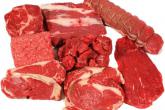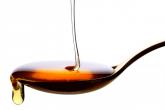Acid and alkaline balance - is a state where the relation between specific cations and anions in constitutional fluids is maintained, it determines the appropriate pH and proper function of life processes. Disorders of acid-alkaline balance are called acidosis and alkalosis. In both cases it is a life-threatening state when there is a disorder in pH reaction in blood.
The optimum range of pH reaction in blood for most metabolic processes is 7,35-7,45. Decreases below 6.8 and increases above 7.8 are killing the organism because: proteins undergo denaturation, cellular enzymes stop working, the exchange of respiratory gas ceases. The main causes of acidosis (pH 7.45) include: diarrhea, severe vomiting, malnutrition, dyslipidaemias, hormonal disorders, excess of alkalizing medications. The symptoms of alkalosis: hyperventilation, drowsiness fits, asthma, hypothermia, muscle pain.
|
|
|
Increasing the acidity of the body (also consuming acid-forming food) increases its susceptibility to chronic and incurable diseases such as oncological diseases, immune disorders, sclerosis, heart disease, diabetes, and arthritis.
Foodstuffs differ in acidic elements content (the most important are: chlorine, phosphorus and sulphur) and in alkaline elements content (the most important are: calcium, sodium, potassium, magnesium), that?s why the composition of food we eat has an impact on the acid-alkaline regulation in body. In the majority of food products that are basic in our diet acidic elements dominate. To keep acid-alkaline balance of the body it is recommended to have 80% of diet by alkaline products, and maximum 20% by acidic products. In the distinction between what is acidic or alkaline there are many misunderstandings. Acidic products such as lemons are alkaline to our body and they can be used to treat hyperacidity.
Acid and alkaline food chart
| Alkaline forming foods | Acid forming foods | ||||
|---|---|---|---|---|---|
| highly alkaline (ph 9.0 - 8.0) |
moderately alkaline |
mildly alkaline |
mildly acidic |
moderately acidic |
highly acidic |
| lemons | sweet apples | almonds | barley malt syrup | fish | artificial sweeteners |
| watermelons | apricots | artichokes | barley | fruit juices with sugar | beef |
| agar agar | alfalfa sprouts | Brussels sprouts | brans |
maple syrup (processed) |
carbonated soft drinks and fizzy drinks |
| cantaloupe | avocados | green tea | cashews | molasses (sulphured) | flour (white, wheat) |
| cayenne pepper | bananas (ripe) | sour cherries | cereals |
pickles (commercial) |
goat |
| dried dates | bilberries | fresh coconuts | cornmeal |
breads (refined) of corn, oats, rice and rye |
lamb |
| dried figs | sweet tomatoes | cucumbers | cranberries | cereals (refined) | pastries and cakes from white flour |
| kelp | carrots | eggplants | honey (pasteurized) | corn flakes | pork |
| karengo | celery | fresh honey | macadamias | shellfish | white sugar |
| kudzu root | currants | leek | lentils | wheat germ | beer |
| limes | fresh dates | mushrooms | maple syrup (unprocessed) | whole wheat foods | brown sugar |
| mangoes | fresh figs | fresh olives | milk (homogenized) | wine | chicken |
| melons | garlic | onions | molasses | sweetened yoghurt | deer |
| papayas | goosberries | Essene bread | nutmeg | bananas (green) | chocolate |
| parsley | low sweet grapes | horseradish | mustard | buckwheat | coffee |
| seedless sweet grapes | grapefruites | sea salt | pistachios | cheeses (sharp) | jams |
| watercress | herbs (fresh, green) | miso | popcorn with butter | corn and rice breads | jellies |
| seaweeds | lettuce | olives (ripe) | rye (grain) | egg whole (cooked hard) | liquor |
| asparagus | nectarines | chestnuts | rye bread | ketchup | white pasta |
| endive | sweet peaches | amaranth | pumpkin seeds | mayonnaise | rabbit |
| kiwi fruit | low sweet pears | fresh goat's milk | sunflower seeds | oats | semolina |
| fresh fruit juices unsweetened | fresh sweet green peas | millet | walnuts | pasta (whole grain) | refined table salt |
| sweet grapes | pumpkin | olive oil | blueberries | pastry (wholegrain and honey) | black tea |
| passion fruit | spinach | quinoa | rice or wheat crackers (unrefined) | peanuts | turkey |
| sweet pears | sour apples | rhubarb | brazil nuts |
potatoes (with no skins) |
wheat bread |
| pineapples | bamboo shoots | sesame seeds | salted butter | popcorn (with salt and butter) | white vinegar |
| raisins | fresh green string beans | dry soy beans |
cheeses (mild and crumbly) |
rice (basmati) |
white rice |
| umeboshi plums |
beetroots | soy cheese | crackers | rice (brown) | |
| fresh vegetable juices unsweetened | broccoli | soy milk |
dried beans (mung, adzuki, pinto, kidney, garbanzo) |
soy sauce | |
| stevia | cabbage | sprouted grains | dried coconut | tapioca | |
| baking soda | sour grapes | tempeh | egg whites | wheat bread (sprouted organic) | |
| wheat grass | kale | tofu | goats milk (homogenized) | ||
| barley grass | kohlrabi | low sweet tomatoes | pickled olives | ||
| mandarin oranges |
iceberg lettuce | okra | pecans | ||
| Himalayan salt | oranges | taru | plums | ||
| turnip |
egg yolks (soft cooked) |
prunes | |||
| low sweet peaches | spelt | ||||
| raspberries | |||||
| strawberries | |||||
| squashes | |||||
| fresh sweet corn | |||||
| parsnip | |||||
| jacket potatoes | |||||
| guavas | |||||
| persimmon | |||||
| cauliflowers | |||||
| fresh ginger | |||||
| carob | |||||
| Neutral foods (pH 7.0) | |||||
| fresh unsalted butter | |||||
| cream | |||||
| margarine | |||||
| fresh cow milk | |||||
| vegetable oils (except olive oil) | |||||
| whey | |||||
| plain yoghurt | |||||



















